This was the fourth webinar in the “Envisioning India” series, co-sponsored by the Sigur Center for Asian Studies and the Institute for International Economic Policy. It is a platform for dialogue and debate. We invited you to engage with us in this series of important discussions.
The “Envisioning India” series is organized under the stewardship of IIEP Co-Director James Foster, Oliver T. Carr, Jr. Professor of International Affairs and Professor of Economics, and IIEP Distinguished Visiting Scholar Ajay Chhibber. The fourth event, “Saving Indian Capitalism from Its Capitalists” featured Pranab Bardhan, Professor of Economics at University of California-Berkeley, with Jean Dreze of Ranchi University and Michael Walton of the Harvard Kennedy School as discussants. The discussion was moderated by Professor James Foster, with an introduction by Dr. Ajay Chhibber.
There are often conflicts in the interests of capital, between the individual capitalist and the capitalist class as a whole, or between the short-term and long-term interests of capital. In this talk Prof. Bardhan will give examples of this from the Indian debates on labor reform, health policy, policy relating to vocational education, and from the adverse effects of the growing concentration of capital and wealth distribution.
The Indian Government recently enacted a major labor reform that has been widely acclaimed in the business press and by many reform-mongering economists. The attempt to bring some order to the tangled mess that the old labor laws were in is welcome, as is more ‘flexibility’ in labor employment, but as part of a package deal with a reasonable scheme of unemployment benefits for workers; instead the new laws make the already insecure life of workers even more insecure. Capitalists envisioning a longer horizon should be aware that an insecure, disgruntled and unstable labor force is a sure bet for low productivity. Health Policy and Vocational Education also show cases where a more prudent corporate sector would have encouraged serious alternatives; this will be elucidated in the talk.
More broadly, in India the data suggest that corporate concentration and inequality in wealth distribution are galloping, and this is bound to have a negative effect on overall productivity and innovations, which is against the long-term interests of capitalism, even though it may give a boost to short-term earnings of individual capitalists. Compared to some other capitalist countries, India is more of a crony oligarchy that is cozy with the current regime, which is not conducive to a healthy development of capitalism in India. Nor is the rise in inequality that exacerbates demand deficiency, or the brazen dilution of environmental regulations that poisons and uproots community life.
About the Speakers:
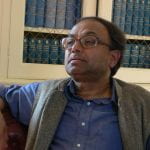 Pranab Bardhan is Professor of Graduate School at the Department of Economics at the University of California, Berkeley.
Pranab Bardhan is Professor of Graduate School at the Department of Economics at the University of California, Berkeley.
He was educated at Presidency College, Kolkata and Cambridge University, England. He had been at the faculty of MIT, Indian Statistical Institute and Delhi School of Economics before joining Berkeley. He has been Visiting Professor/Fellow at Trinity College, Cambridge, St. Catherine’s College, Oxford, and London School of Economics. He held the Distinguished Fulbright Siena Chair at the University of Siena, Italy in 2008-9. He was the BP Centennial Professor at London School of Economics for 2010 and 2011. He got the Guggenheim Fellowship in 1982.
He has done theoretical and field studies research on rural institutions in poor countries, on political economy of development policies, and on international trade. A part of his work is in the interdisciplinary area of economics, political science, and social anthropology. He was Chief Editor of the Journal of Development Economics for 1985-2003. He was the co-chair of the MacArthur Foundation-funded Network on the Effects of Inequality on Economic Performance for 1996-2007.
He is the author of 16 books and editor of 14 other books, and author of more than 150 journal articles including in leading Economics journals (like American Economic Review, Quarterly Journal of Economics, Econometrica, Journal of Political Economy, Review of Economic Studies, Economic Journal, American Economic Journal, Journal of Development Economics, Journal of Public Economics, Economic Development and Cultural Change, Oxford Economic Papers, etc.).
He has also contributed essays to popular outlets like New York Times, Scientific American, Financial Times, Die Zeit, Boston Review, Los Angeles Review of Books, Project Syndicate, Yale Global Online, Times of India, Economic Times, Business Standard, Bloomberg Quint, Hindustan Times, Ideas for India, Economic and Political Weekly, Indian Express, Ananda Bazar Patrika (in Bengali), etc. From 2018 he has started writing a periodic column for a New York-based blog, 3 Quarks Daily.
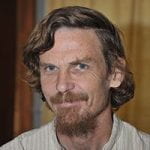 Jean Dreze studied Mathematical Economics at the University of Essex and did his Ph.D. at the Indian Statistical Institute, New Delhi. He has taught at the London School of Economics and the Delhi School of Economics, and is currently Visiting Professor at Ranchi University as well as Honorary Professor at the Delhi School of Economics. He has made wide-ranging contributions to development economics and public policy, with special reference to India. His research interests include rural development, social inequality, elementary education, child nutrition, health care and food security. Jean Drèze is co-author (with Amartya Sen) of Hunger and Public Action (Oxford University Press, 1989) and An Uncertain Glory: India and Its Contradictions (Penguin, 2013)”, and also one of the co-authors of the Public Report on Basic Education in India, also known as “PROBE Report”.
Jean Dreze studied Mathematical Economics at the University of Essex and did his Ph.D. at the Indian Statistical Institute, New Delhi. He has taught at the London School of Economics and the Delhi School of Economics, and is currently Visiting Professor at Ranchi University as well as Honorary Professor at the Delhi School of Economics. He has made wide-ranging contributions to development economics and public policy, with special reference to India. His research interests include rural development, social inequality, elementary education, child nutrition, health care and food security. Jean Drèze is co-author (with Amartya Sen) of Hunger and Public Action (Oxford University Press, 1989) and An Uncertain Glory: India and Its Contradictions (Penguin, 2013)”, and also one of the co-authors of the Public Report on Basic Education in India, also known as “PROBE Report”.
 Michael Walton is Senior Lecturer in Public Policy at the Harvard Kennedy School, where he has taught since 2004 and is a visiting fellow at the Centre for Policy Research, Delhi. He also works with the non-profit IMAGO Global Grassroots whose goal is to take established grassroots organizations to the next level, working especially in India, Latin America and the United States. In addition to core teaching in HKS’ MPA in International Development, he leads the signature on-line course on Policy Design and Delivery. Michael was VKRV Rao Professor at the Institute for Social and Economic Change, Bangalore in 1998 and 1999, and visiting professor at the Delhi School of Economics in 1998. Before academia, Michael worked for 20 years at the World Bank, including on Brazil, Indonesia, Mexico, and Zimbabwe. While there he led two and worked on two other World Development Reports (on Poverty in 1990 and 2000, on Labor in 1995, and Inequality in 2005). Book publications include co-edited volumes on Culture and Public Action, and No Growth without Equity? on Mexico. Current research in India, includes work on Self Help Groups and on scaling up of social enterprises of the Self Employed Women’s Association. Michael is also a dancer. He has a B.A. in Philosophy and Economics and an M.Phil. in Economics from Oxford University.
Michael Walton is Senior Lecturer in Public Policy at the Harvard Kennedy School, where he has taught since 2004 and is a visiting fellow at the Centre for Policy Research, Delhi. He also works with the non-profit IMAGO Global Grassroots whose goal is to take established grassroots organizations to the next level, working especially in India, Latin America and the United States. In addition to core teaching in HKS’ MPA in International Development, he leads the signature on-line course on Policy Design and Delivery. Michael was VKRV Rao Professor at the Institute for Social and Economic Change, Bangalore in 1998 and 1999, and visiting professor at the Delhi School of Economics in 1998. Before academia, Michael worked for 20 years at the World Bank, including on Brazil, Indonesia, Mexico, and Zimbabwe. While there he led two and worked on two other World Development Reports (on Poverty in 1990 and 2000, on Labor in 1995, and Inequality in 2005). Book publications include co-edited volumes on Culture and Public Action, and No Growth without Equity? on Mexico. Current research in India, includes work on Self Help Groups and on scaling up of social enterprises of the Self Employed Women’s Association. Michael is also a dancer. He has a B.A. in Philosophy and Economics and an M.Phil. in Economics from Oxford University.
This event was sponsored with the Sigur Center for Asian Studies.

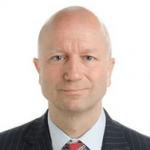



 Daniel Yi Xu is a Professor of Economics at Duke University and Research Associate at the National Bureau of Economic Research. Co-editor of the Review of Economics and Statistics. He is also the associate editor of the Rand Journal of Economics and AEJ: Applied. His research focus tends to focus on Productivity/Innovation, International Trade, and Industrial Organization. His website:
Daniel Yi Xu is a Professor of Economics at Duke University and Research Associate at the National Bureau of Economic Research. Co-editor of the Review of Economics and Statistics. He is also the associate editor of the Rand Journal of Economics and AEJ: Applied. His research focus tends to focus on Productivity/Innovation, International Trade, and Industrial Organization. His website: 
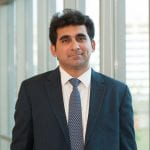










 James E. Foster is the Oliver T. Carr Professor of International Affairs and Professor of Economics at the George Washington University. He received his Ph.D. in economics from Cornell University and holds a Doctorate Honoris Causa from Universidad Autónoma del Estado de Hidalgo (Mexico). Professor Foster’s research focuses on welfare economics — using economic tools to evaluate and enhance the wellbeing of people. His joint 1984 Econometrica paper (with Joel Greer and Erik Thorbecke) is one of the most cited papers on poverty. It introduced the FGT Index, which has been used in thousands of studies and was employed in targeting the Progresa CCT program in México. Other research includes work on economic inequality with Amartya Sen; on the distribution of human development with Luis Felipe Lopez-Calva and Miguel Szekely; on multidimensional poverty with Sabina Alkire; and on literacy with Kaushik Basu. Foster regularly teaches introductory and doctoral courses on international development and each spring joins with Professor Basu in presenting an undergraduate course on Game Theory and Strategic Thinking, to which staff and Board members of the World Bank are also invited. Professor Foster is also Research Fellow at the Oxford Poverty and Human Development Initiative (OPHI), Department of International Development, Oxford University, and a member of the Human Capital and Economic Opportunity (HCEO) Working Group, Becker Friedman Institute for Research in Economics, University of Chicago. He also previously served as an Advisory Board Member on the World Bank’s Commission on Global Poverty.
James E. Foster is the Oliver T. Carr Professor of International Affairs and Professor of Economics at the George Washington University. He received his Ph.D. in economics from Cornell University and holds a Doctorate Honoris Causa from Universidad Autónoma del Estado de Hidalgo (Mexico). Professor Foster’s research focuses on welfare economics — using economic tools to evaluate and enhance the wellbeing of people. His joint 1984 Econometrica paper (with Joel Greer and Erik Thorbecke) is one of the most cited papers on poverty. It introduced the FGT Index, which has been used in thousands of studies and was employed in targeting the Progresa CCT program in México. Other research includes work on economic inequality with Amartya Sen; on the distribution of human development with Luis Felipe Lopez-Calva and Miguel Szekely; on multidimensional poverty with Sabina Alkire; and on literacy with Kaushik Basu. Foster regularly teaches introductory and doctoral courses on international development and each spring joins with Professor Basu in presenting an undergraduate course on Game Theory and Strategic Thinking, to which staff and Board members of the World Bank are also invited. Professor Foster is also Research Fellow at the Oxford Poverty and Human Development Initiative (OPHI), Department of International Development, Oxford University, and a member of the Human Capital and Economic Opportunity (HCEO) Working Group, Becker Friedman Institute for Research in Economics, University of Chicago. He also previously served as an Advisory Board Member on the World Bank’s Commission on Global Poverty.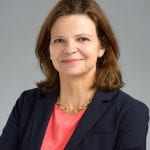 Jennifer G. Cooke is director of the Institute for African Studies at The George Washington University Elliott School of International Affairs. The Institute serves as central for research, scholarly discussion, and debate on issues relevant to Africa. She is a professor of practice in international affairs, teaching courses on U.S. Policy Toward Africa and Transnational Security Threats in Africa. Cooke joined George Washington University in August 2018, after 18 years as director of the Africa Program at the Center for Strategic and International Studies (CSIS), where she led research and analysis on political, economic, and security dynamics in Africa. While at CSIS, Cooke directed projects on a wide range of African issues, including on violent extremist organizations in the Sahel and Lake Chad Basin, China’s growing role in Africa, democracy and elections in Nigeria, religion and state authority in Africa, “stress-testing” state stability in Africa, Africa’s changing energy landscape, and more. She is a frequent writer and lecturer on U.S.-Africa policy and has provided briefing, commentary, and testimony to the media, US Congress, AFRICOM leadership and the U.S. military. She has traveled widely in Africa and has been an election observer in Sierra Leone, Ghana, Liberia, Mali, and Nigeria. As a teenager, she lived in Cote d’Ivoire and the Central African Republic. She holds an M.A. in African studies and international economics from the Johns Hopkins University School of Advanced International Studies (SAIS) and a B.A. in government, magna cum laude, from Harvard University.
Jennifer G. Cooke is director of the Institute for African Studies at The George Washington University Elliott School of International Affairs. The Institute serves as central for research, scholarly discussion, and debate on issues relevant to Africa. She is a professor of practice in international affairs, teaching courses on U.S. Policy Toward Africa and Transnational Security Threats in Africa. Cooke joined George Washington University in August 2018, after 18 years as director of the Africa Program at the Center for Strategic and International Studies (CSIS), where she led research and analysis on political, economic, and security dynamics in Africa. While at CSIS, Cooke directed projects on a wide range of African issues, including on violent extremist organizations in the Sahel and Lake Chad Basin, China’s growing role in Africa, democracy and elections in Nigeria, religion and state authority in Africa, “stress-testing” state stability in Africa, Africa’s changing energy landscape, and more. She is a frequent writer and lecturer on U.S.-Africa policy and has provided briefing, commentary, and testimony to the media, US Congress, AFRICOM leadership and the U.S. military. She has traveled widely in Africa and has been an election observer in Sierra Leone, Ghana, Liberia, Mali, and Nigeria. As a teenager, she lived in Cote d’Ivoire and the Central African Republic. She holds an M.A. in African studies and international economics from the Johns Hopkins University School of Advanced International Studies (SAIS) and a B.A. in government, magna cum laude, from Harvard University. Andrew Tiffin is a senior economist at the IMF, working in the regional studies division of the Fund’s African Department. He is also keenly involved in the effort to incorporate artificial intelligence/machine-learning techniques into the standard analytical toolkit of the Fund. Previously, he has worked on Middle Eastern countries, with a particular interest in refugee issues in Jordan and Lebanon, as well as numerous countries in Europe–he was part of the Italy team during the debt crisis of 2012, and part of the Russia team for the global financial crisis of 2008. Raised in Sydney, Andrew is an Australian national. He received his post-graduate training at Princeton University, where he obtained both a Ph.D. in economics and an M.P.A. in international relations. In addition to his work with the Fund, Andrew has held positions at the Reserve Bank of Australia, and with the Australian Government.
Andrew Tiffin is a senior economist at the IMF, working in the regional studies division of the Fund’s African Department. He is also keenly involved in the effort to incorporate artificial intelligence/machine-learning techniques into the standard analytical toolkit of the Fund. Previously, he has worked on Middle Eastern countries, with a particular interest in refugee issues in Jordan and Lebanon, as well as numerous countries in Europe–he was part of the Italy team during the debt crisis of 2012, and part of the Russia team for the global financial crisis of 2008. Raised in Sydney, Andrew is an Australian national. He received his post-graduate training at Princeton University, where he obtained both a Ph.D. in economics and an M.P.A. in international relations. In addition to his work with the Fund, Andrew has held positions at the Reserve Bank of Australia, and with the Australian Government. Louise Fox is an experienced development economist who specializes in strategies for employment creation, opportunity expansion, economic empowerment, and poverty reduction. She has advised governments in the developed and developing world, international organizations, and philanthropic and non-profit organizations on problem diagnosis, strategies for results, and outcome measurement. She held full-time positions at USAID (as Chief Economist) and at the World Bank. She is currently affiliated with the African Growth Initiative at the Brookings Institution and the Blum Center for Developing Economies, University of California, Berkeley. She was previously affiliated with the Overseas Development Institute, where she led a major research project. Louise has published in the areas of inclusive growth, structural transformation, youth employment, the political economy of poverty reduction, gender and women’s economic empowerment, employment, labor markets, and labor regulation, pension reform, reform of child welfare systems, social protection, effective public expenditures in the social sectors, and female-headed households and child welfare. Her most recent book was Youth Employment in Sub-Saharan Africa, published by the World Bank in 2014.
Louise Fox is an experienced development economist who specializes in strategies for employment creation, opportunity expansion, economic empowerment, and poverty reduction. She has advised governments in the developed and developing world, international organizations, and philanthropic and non-profit organizations on problem diagnosis, strategies for results, and outcome measurement. She held full-time positions at USAID (as Chief Economist) and at the World Bank. She is currently affiliated with the African Growth Initiative at the Brookings Institution and the Blum Center for Developing Economies, University of California, Berkeley. She was previously affiliated with the Overseas Development Institute, where she led a major research project. Louise has published in the areas of inclusive growth, structural transformation, youth employment, the political economy of poverty reduction, gender and women’s economic empowerment, employment, labor markets, and labor regulation, pension reform, reform of child welfare systems, social protection, effective public expenditures in the social sectors, and female-headed households and child welfare. Her most recent book was Youth Employment in Sub-Saharan Africa, published by the World Bank in 2014. Seung Mo Choi is a Senior Economist working on regional surveillance in the IMF’s African Department. He has worked on banking crises, financial market policies, climate change, low-income country issues, and capacity development, including in the IMF’s European Department and in the Institute for Capacity Development. His research has been published in economics and finance journals such as International Economic Review. Prior to joining the IMF, he worked as an Assistant Professor at Washington State University and obtained a Ph.D. in economics from the University of Chicago and a B.A. in economics from Seoul National University.
Seung Mo Choi is a Senior Economist working on regional surveillance in the IMF’s African Department. He has worked on banking crises, financial market policies, climate change, low-income country issues, and capacity development, including in the IMF’s European Department and in the Institute for Capacity Development. His research has been published in economics and finance journals such as International Economic Review. Prior to joining the IMF, he worked as an Assistant Professor at Washington State University and obtained a Ph.D. in economics from the University of Chicago and a B.A. in economics from Seoul National University. Stephen C. Smith is Professor of Economics and International Affairs at George Washington University. In 2018 he was UNICEF Senior Fellow at the UNICEF Office of Research-Innocenti, Florence, Italy. Smith received his Ph.D. in Economics from Cornell University and has been a Fulbright Research Scholar, a Jean Monnet Research Fellow, a Visiting Fellow at the Brookings Institution, a Nonresident Senior Fellow at Brookings, a Fulbright Senior Specialist, a member of the Advisory Council of BRAC USA, and an Associate Editor of the Journal of Economic Behavior and Organization. He has twice served as Director of the Institute for International Economic Policy at GWU. Smith is the co-author with Michael Todaro of Economic Development (12th Edition, Pearson, 2014). He is also author of Ending Global Poverty: A Guide to What Works (paperback edition Palgrave Macmillan, 2009), and co-editor with Jennifer Brinkerhoff and Hildy Teegen of NGOs and the Millennium Development Goals: Citizen Action to Reduce Poverty (Palgrave Macmillan, 2007). He is also author or coauthor of about 45 professional journal articles and many other publications. Smith’s recent research has focused on extreme poverty and strategies and programs to address it; and on the economics of adaptation and resilience to climate change in low-income countries, emphasizing autonomous adaptation by households and communities and its effects, and adaptation financing.
Stephen C. Smith is Professor of Economics and International Affairs at George Washington University. In 2018 he was UNICEF Senior Fellow at the UNICEF Office of Research-Innocenti, Florence, Italy. Smith received his Ph.D. in Economics from Cornell University and has been a Fulbright Research Scholar, a Jean Monnet Research Fellow, a Visiting Fellow at the Brookings Institution, a Nonresident Senior Fellow at Brookings, a Fulbright Senior Specialist, a member of the Advisory Council of BRAC USA, and an Associate Editor of the Journal of Economic Behavior and Organization. He has twice served as Director of the Institute for International Economic Policy at GWU. Smith is the co-author with Michael Todaro of Economic Development (12th Edition, Pearson, 2014). He is also author of Ending Global Poverty: A Guide to What Works (paperback edition Palgrave Macmillan, 2009), and co-editor with Jennifer Brinkerhoff and Hildy Teegen of NGOs and the Millennium Development Goals: Citizen Action to Reduce Poverty (Palgrave Macmillan, 2007). He is also author or coauthor of about 45 professional journal articles and many other publications. Smith’s recent research has focused on extreme poverty and strategies and programs to address it; and on the economics of adaptation and resilience to climate change in low-income countries, emphasizing autonomous adaptation by households and communities and its effects, and adaptation financing. Preya Sharma is a senior economist in the African Department of the IMF where she is Special Assistant to the Director. Her research has focused on structural transformation, the future of work, and digitalization in sub-Saharan Africa, as well as emerging market crises and development. Before joining the IMF she was the Head of Emerging Markets at HM Treasury in the UK. She holds a Masters in Public Administration in International Development from the Harvard Kennedy School and a BSc in Economics from the London School of Economics.
Preya Sharma is a senior economist in the African Department of the IMF where she is Special Assistant to the Director. Her research has focused on structural transformation, the future of work, and digitalization in sub-Saharan Africa, as well as emerging market crises and development. Before joining the IMF she was the Head of Emerging Markets at HM Treasury in the UK. She holds a Masters in Public Administration in International Development from the Harvard Kennedy School and a BSc in Economics from the London School of Economics.
